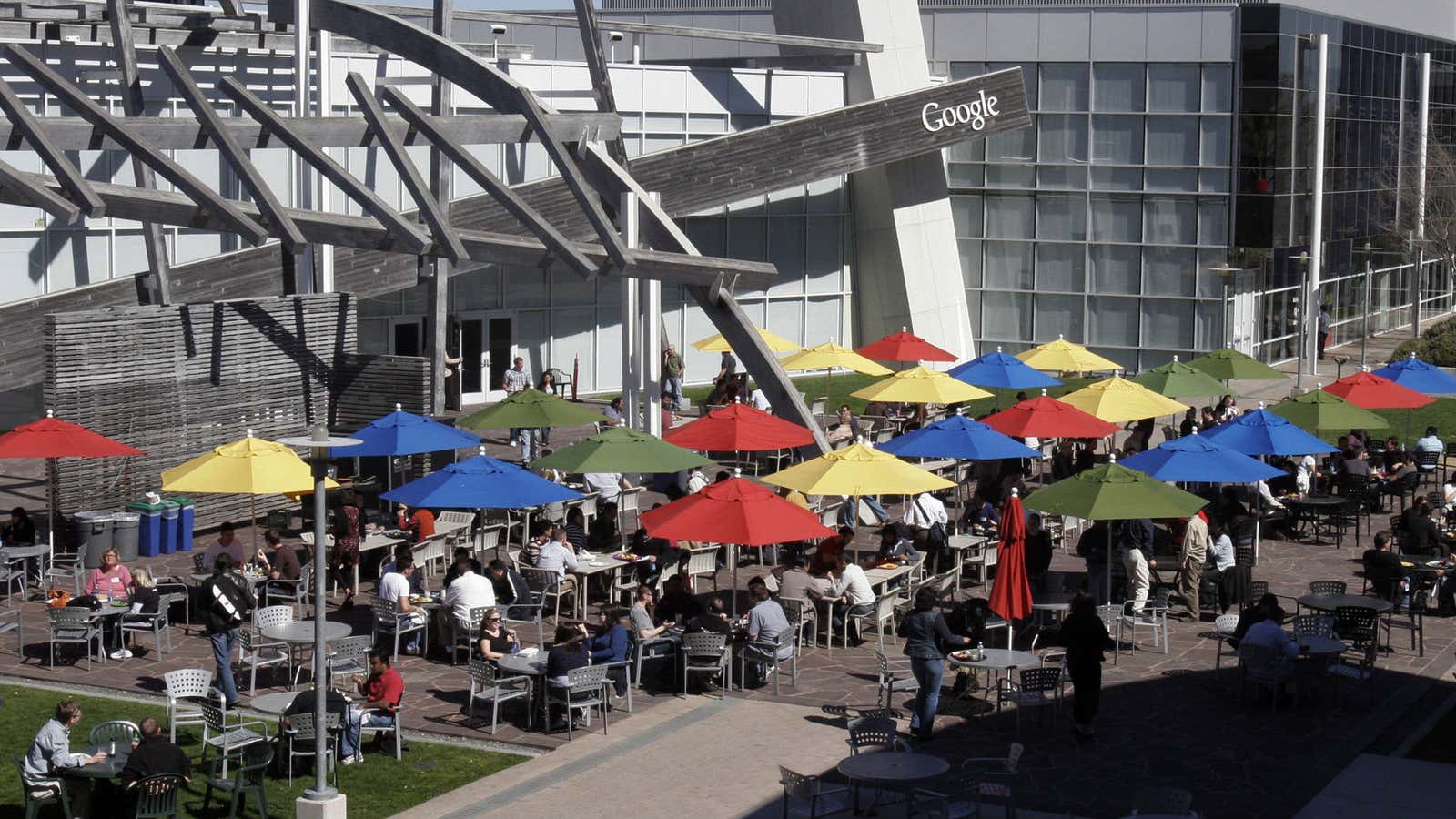This item has been corrected.
Milton Friedman, the economist most closely association with free market capitalism, once wrote a book called “There’s no Such Thing as a Free Lunch.” The Internal Revenue Service (IRS), America’s tax agency, would tend to agree. Silicon Valley firms are famous for providing free meals to their employees and the IRS believes that somebody should pay.
The Wall Street Journal reports (paywall) that the IRS is looking into whether free meals provided by the likes of Google, Facebook, and Twitter should count as taxable benefits. If the answer is yes, these companies—or perhaps even their employees—could be liable to pay 30% of the market value of the meals provided.
Yet unlike other benefits—gym memberships, corporate cars—it is considerably harder to make the case that free lunches are seen by these companies as a competitive advantage over other similar employers. First, nearly every decent-size Silicon Valley firm provides free meals as standard. (Quartz, alas, provides only a venue for drinks, and even then only on Friday evenings, and only to New York staff. Woe.)
More importantly, providing lunch (or indeed breakfast, dinner, or all three) benefits the companies more than employees. The idea is that if you can give your staffers a reason to stay in the office, they will eat faster and get back to work faster. They may even do something useful (for the company) over lunch instead of letting their minds wander to other things. And it makes them less likely to bump into colleagues at other firms, who may try to poach staff or to whom they may leak information.
Employees know this. A thread earlier this year on Quora, a question-and-answer site popular among techies, asked the seemingly obvious question, “Why is free food such a big deal to well-paid Silicon Valley tech employees?” The most popular answer, by Quora’s Abhinav Sharma, starts by praising the quality of the food. But he quickly comes to the point:
- It gets employees to stay late.
- Employees don’t waste time going out, looking for and waiting on food.
- Perks like free food are not easily relatable to an increase in salary. The more dimensions of your life your company takes care of, the more it helps strengthen employee trust and retain people. Instead of thinking ‘my company feeds me food worth $3000’ most people think of it as ‘in addition to my salary, my company also takes care of my eating needs.’ This is a powerful psychological tool.
Amir Memon, an engineer at Facebook, does see it as “a $5000/year tax-free benefit” (emphasis his) but goes on to say that “It saves us food-prep time… groceries, cooking, dishes…. bleh… i’d rather be coding.” And an anonymous poster who says he worked at Google for over six years, pointed out that in “Although it no doubt happens from time to time, I never saw a single person leave campus for a meal. EVER.” That is every employer’s dream. It may seem odd to those who don’t work in the coddled workplaces of the tech world.
Indeed, free meals should be seen as the free bus shuttles (with Wi-Fi) that large tech firms provide to ferry their San Francisco-based employees to distant headquarters: They are a way of ensuring that the staff gets to work on time, doing away with unreliable public transport as an excuse, and perhaps even nudging them to do some work while they’re on their way. These aren’t so much benefits as brilliant ways to boost productivity while making employees feel special.
Correction (Sept. 3, 2014): An earlier version of this article incorrectly said that Quartz pays for staff drinks on Fridays. Apparently we all chip in. The error is regretted.
